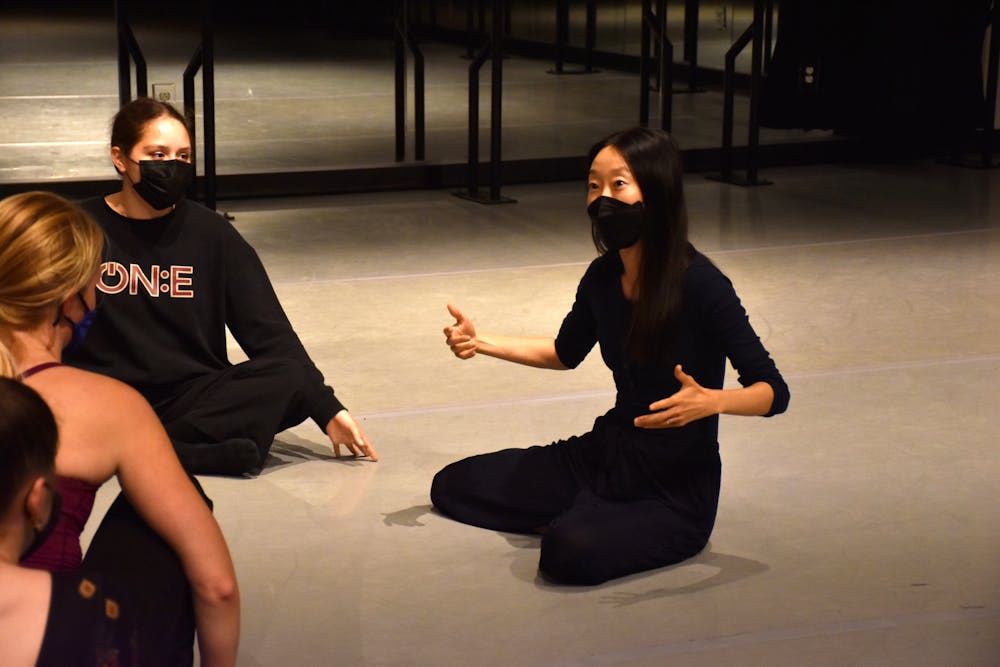Kate Shugar drives two hours from Hickory, North Carolina to Elon every Tuesday and Thursday morning. When she’s not commuting, she’s teaching at a dance studio in Hickory or working as a virtual tutor. This is Shugar’s life as an adjunct professor in Elon’s performing arts department.
“I have three jobs,” Shugar said. “Sometimes I would really like to come to Elon for events on campus, whether it’s to support my students in a performance or come to a panel discussion, but I can’t, because I have responsibilities to my other jobs.”
Shugar joined Elon’s faculty in the fall of 2020. After connecting with full-time Elon professors while teaching at University of North Carolina at Greensboro, Shugar was invited to teach a class at Elon and later became an adjunct professor — a part-time professor not considered a permanent professor or on tenure track.
While Elon has brought new connections with students and full-time faculty for Shugar, her position is only one example of a commitment in her life that she has to balance.
“Although I would love to move closer to Elon, I can’t necessarily drop the other job because Elon doesn’t pay for everything,” Shugar said.
For other adjunct instructors, like Jiwon Ha, balancing additional jobs while teaching at Elon is nothing new — especially in the arts.
“Being in this industry and being a dancer, it’s really hard to pay bills,” Ha said.
A modern and Korean dance professor at Elon, Ha joined the university four years ago when she moved here from Korea. Since then, she has been an adjunct instructor and also served as the contemporary director at Artistic Motion School of Arts — a dance school in Greensboro. Ha graduated from Pusan National University in Korea, where she served as a professor similar to an adjunct's position, and later brought those skills to Elon to continue her dream.
“This was the goal — dancing and teaching at the same time. I love what I do and I’m enjoying what I do with students and I’m still getting paid,” Ha said.
Teaching and dancing have always been the goal for both Ha and Shugar, but doing that as an adjunct at Elon also comes with setbacks. With at least 20 adjunct positions within the performing arts department — assistant professors, instructors and accompanists — there are many limiting factors in the position, such as the lack of job security and the low number of credit hours an adjunct professor may fulfill.
“From a student perspective, it’s really nice to have so many different professors, so many different perspectives. In one sense, it’s always great to have different people teaching because you learn from so many different people,” Shugar said. “But from the perspective of a working person, it’s hard because that means you don’t get as many credit hours to teach per semester because they are divided among so many different adjunct professors.”
To express the needs of many adjunct professors, Shugar said she has thought of joining the faculty union at Elon — part-time, limited term or visiting faculty at Elon were granted eligibility to form a union in February 2021 after the certification of Elon Faculty Forward. The only thing holding Shugar back from joining the union is not knowing when she will teach since she is hired on a semester basis.
“The more I teach here, the more I’m inclined to join, but there’s always that sense of uncertainty — I don’t know if I’ll get a class next semester,” Shugar said.
But even with the drawbacks for adjunct professors, there still exists the joy of teaching what they love.
“I’ve always wanted to be a professor,” Ha said. “I’m always amazed how the students are so out there engaging and sharing ideas.”
Shugar said although adjunct professors are separated with tenure by rank, she still feels the sense of community at Elon, which is an experience she values.
“I like that Elon in comparison to a public university is smaller,” Shugar said. “I feel very much, even as an adjunct, part of the Elon community.”


